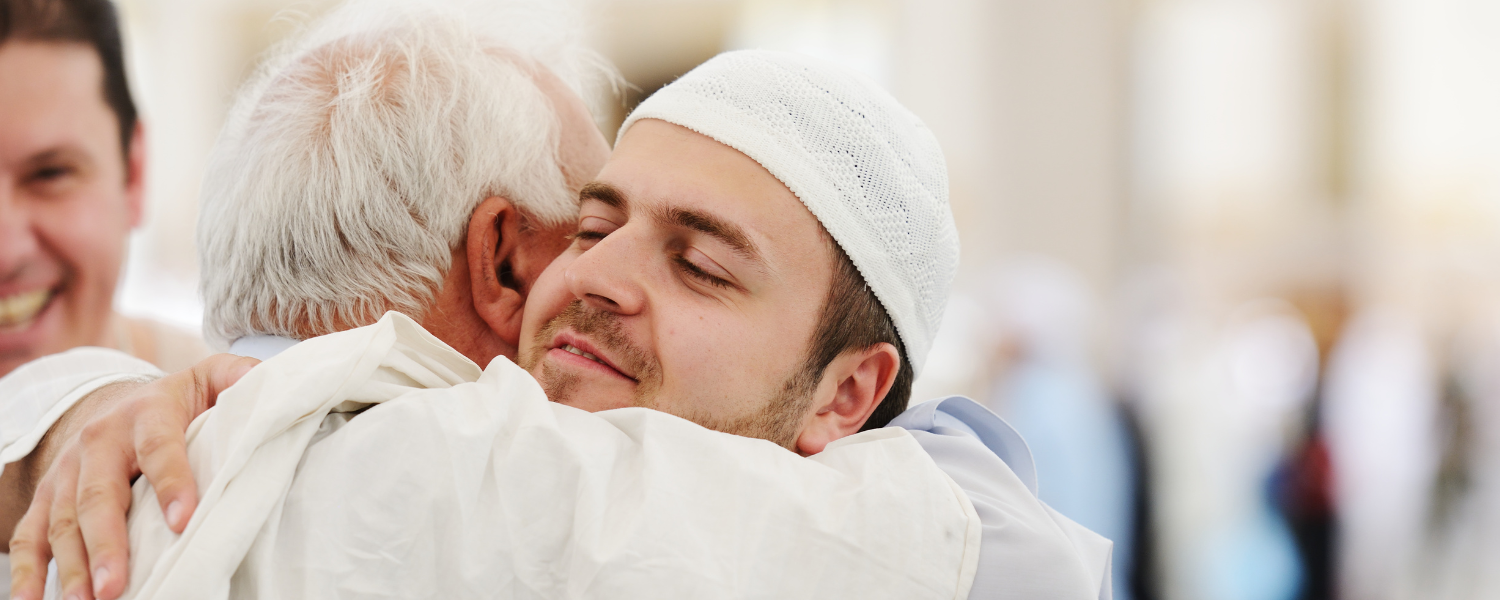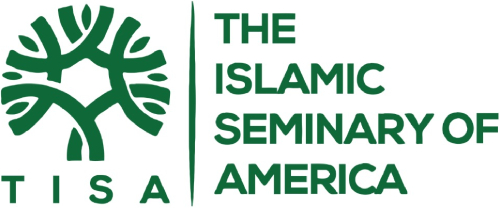
Prophet Muhammad (peace and blessings be upon him), was a pioneer in emphasizing the importance of caring for the elderly irrespective of sex, color, or religion. He himself set a great example in practicing the principles he taught.
A Duty of the Young
Anas ibnMalik (may Allah be pleased with him) narrated that the Prophet (peace and blessings be upon him) said,
“If a young man honors an elderly on account of his age, Allah appoints someone to honor him in his old age.” (At-Tirmidhi; ranked hasan by Al-Albani)
The Prophet here advises the young of the Muslim society, who will be tomorrow’s elderly, to honor the elderly. Continuous application of this Prophetic advice helps bridge the gap between generations and spreads an atmosphere of love and understanding between the young and the old. Consider here also the generalization in the Prophet’s words: “If a young man honors an elderly;“ the hadith requires honoring the elderly regardless of their color or religion.
In another hadith Muslims are told to be merciful to all people, Muslim and non-Muslim:
Anas ibn Malik (may Allah be pleased with him) narrated that the Prophet (peace and blessings be upon him) said, “By Him in Whosehand my soul is, Allah does not bestow His mercy except on a merciful one.”
They (the Companions) said, “All of us are merciful.”
The Prophet replied, “Not only that each of you has mercy upon the other, but to have mercy also upon all people.” (Abu Ya`la; authenticated by Al-Albani)
A Sign of Reverence for Allah
Abu Musa Al-Ash`ari (may Allah be pleased with him) narrated that the Prophet (peace and blessings be upon him) said, “It is out of reverence to Allah to respect the white-headed (aged) Muslim.” (Abu Dawud; ranked hasan by Al-Albani)
In the hadith above, the Prophet considered respecting the elderly a way to show reverence for the Almighty. He linked reverence for the Creator and His creatures with veneration of the All-Powerful and the weak elderly. The hadith implies all kinds of respect and care for the elderly: Health care, psychological care, social care, economic care, ending illiteracy, providing education, and other forms of care that the international community calls for today.
In one hadith, the Prophet disavows those who do not venerate the elderly and considers them alien to the Muslim society:
He is not one of us who does not show mercy to our young ones and esteem to our elderly. (At-Tirmidhi and Ahmad; authenticated by Al-Albani)
Practical Examples
Abu Hurairah (may Allah be pleased with him) narrated that the Prophet (peace and blessings be upon him) said,
“The young should (initiate) salutation to the old, the passerby should (initiate) salutation to the sitting one, and the small group of persons should (initiate) salutation to the large group of persons.” (Al-Bukhari)
In the hadith above, the Prophet (peace and blessings be upon him) gives practical examples of Islamic etiquette and starts with a token of respect to the old. Thus the young should take the initiative toward the aged in greeting and also helping, showing kindness, visiting, advising, phoning, and so on.
imilarly, giving priority to the elderly in different situations is a token of respect and honor to them:
It was narrated that the Prophet (peace and blessings be upon him) said,“Jibreel ordered me to give priority to the elderly.” (Al-Fawa’id, Abu Bakr Ash-Shafi`i; authenticated by Al-Albani)
The Prophet also ordered Muslims to “start with the elderly” when serving a drink or the like (Abu Ya`la; authenticated by Al-Albani).
In addition, the Prophet ordered that priority be given to the old concerning leading prayers:
Malik ibn Al-Huwayrith (may Allah be pleased with him) narrated that the Prophet said,
“When the time for prayer is due, one of you should announce Adhan and the oldest among you should lead the prayer.” (Al-Bukhari)
This hadith does not contradict the other hadith that gives priority in leading the prayer to one who is distinguished in recitation and memorization of the Quran. The two criteria are to be considered, as reported in the hadith of Mas`ud Al-Ansari(may Allah be pleased with him):
“The person who is best versed in the recitation of the Book of Allah should lead the prayer; but if all those present are equally versed in it, then the one who has most knowledge of the Sunnah; if they are equal in that respect, then the one who has immigrated (to Madinah) first; if they are equal in this respect, then the oldest of them.“ (Muslim)
Furthermore, according to Prophetic guidance, the elder are worthier to start a conversation. Once, Huwayyisah and Muhayyisah, the sons of Mas`ud ibn Ka`b, and `Abdur-Rahman ibn Sahl came to the Prophet to discuss a certain matter with him.`Abdur-Rahman, who was the youngest of them all, started talking. Thus, the Prophet said, “Let the eldest (among you) speak first” (Al-Bukhari).
Treating the elderly gently. IbnKathir tells the following in his biography of the Prophet. When the Prophet (peace and blessings be upon him) entered Makkah in Ramadan AH 8 (January 630) and entered the Sacred Mosque, Abu Bakr brought his father, AbuQuhafah, to the Prophet to embrace Islam. When the Prophet saw him, he said to Abu Bakr, “Why didn’t you leave the old man at his house and I would’ve gone to him there?”
Abu Bakr said, “You are more deserving of him coming to you than he is of you going to him.”
The Prophet seated Abu Quhafah in front of him and honored him. Then he passed his hand on Abu Quhafah’s chest and asked him to embrace Islam and Abu Quhafah did.
These are just few examples of the Prophet’s gentleness, mercy, and respect towards the elderly. These examples, and many others, translate the sublime Islamic code of ethics for treating the elderly and provide Muslims, generation after generation, with a practical model that they should follow. Such care for the elderly is in line with the Islamic principle of the dignity of the human being and with the spirit of solidarity and mercy that pervades the Muslim society.
SOURCE: aboutislam.net Author: Muhammad Mus`ad Yaqut
